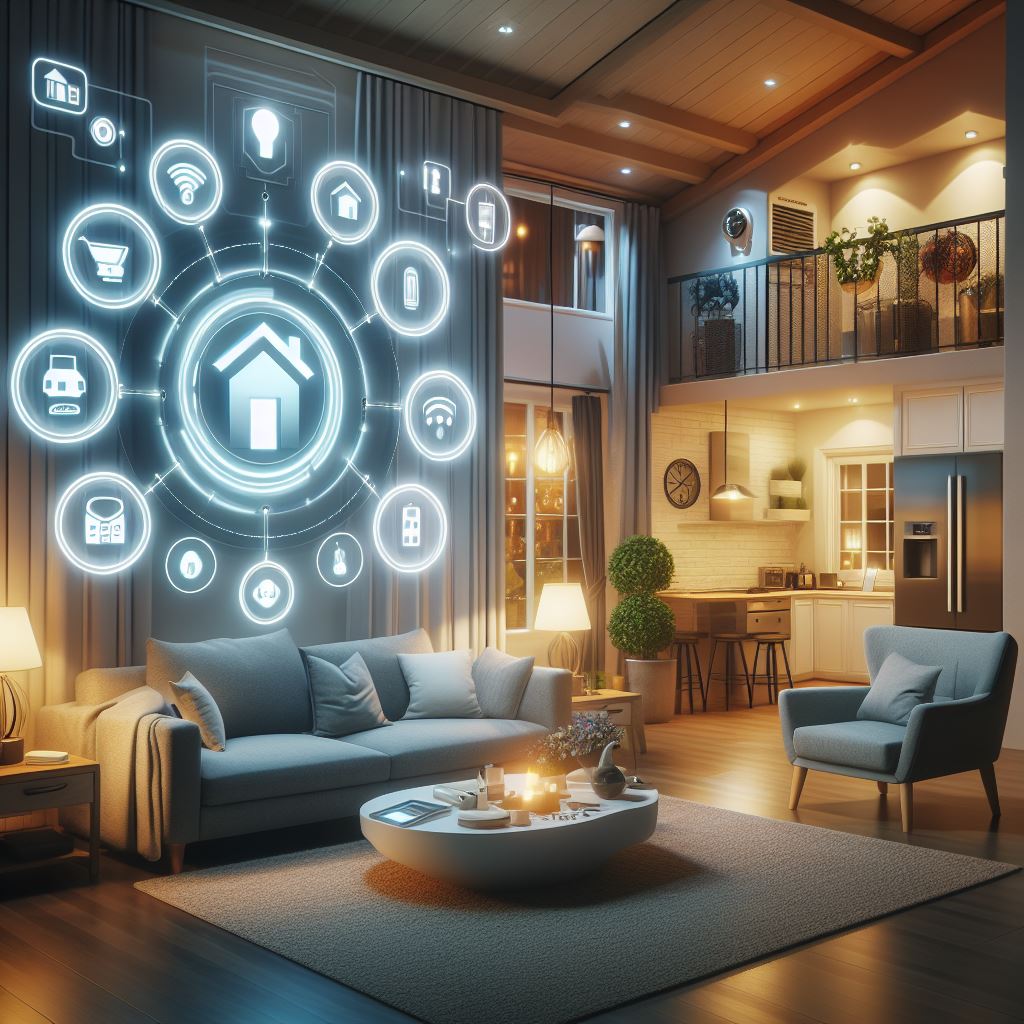Artificial Intelligence (AI) is driving significant advancements in the smart home industry, revolutionizing how we manage and interact with our living spaces. By integrating AI into smart home systems, innovations are enhancing convenience, security, and efficiency. This article delves into the key ways AI is transforming the smart home landscape.
Voice Assistants and Natural Language Processing (NLP): AI-powered voice assistants like Amazon’s Alexa, Google Assistant, and Apple’s Siri have become integral to smart home ecosystems. Advances in NLP have greatly improved the accuracy with which these assistants understand and process complex commands. Multilingual support has expanded their accessibility, allowing users to interact with their smart devices in various languages and dialects. This technology enhances user convenience, enabling hands-free control and seamless integration with home automation systems.
Predictive Analytics for Home Automation: AI’s role in predictive analytics has made home automation smarter and more efficient. By analyzing data from smart devices, AI algorithms can predict user behavior and optimize settings accordingly. This includes adaptive learning, where systems adjust lighting, temperature, and other settings based on observed patterns and preferences. Predictive analytics also helps in managing energy consumption, optimizing usage to reduce costs and environmental impact, resulting in a more personalized and sustainable home environment.
Smart Security and Surveillance: AI is significantly enhancing home security through advanced features like facial recognition and behavior analysis. AI-powered cameras now offer more precise identification of familiar faces versus strangers, reducing false alarms and increasing reliability. Additionally, AI analyzes patterns in surveillance footage to detect suspicious behavior or anomalies. These innovations improve the effectiveness of security systems, providing greater peace of mind and more responsive protection.
AI-Driven Energy Efficiency: AI technologies contribute to smarter energy management, which is crucial for reducing both costs and environmental impact. Smart thermostats equipped with AI learn user preferences and optimize heating and cooling schedules to maximize efficiency while maintaining comfort. Predictive maintenance is another key innovation, where AI monitors the condition of appliances and HVAC systems to anticipate and address potential issues before they lead to failures, thereby extending the lifespan of equipment and improving overall efficiency.
Enhanced Home Entertainment Systems: In the realm of home entertainment, AI is making significant strides. AI algorithms now provide personalized content recommendations based on viewing habits, ensuring users receive suggestions tailored to their preferences. Additionally, AI-powered systems offer intuitive controls via voice commands or gestures, enhancing the user experience by making interactions with entertainment devices more fluid and enjoyable.
Intelligent Home Healthcare: AI is also transforming home healthcare, particularly for elderly individuals and those with chronic conditions. AI-driven wearable devices monitor vital signs and health metrics in real-time, alerting users and caregivers to potential health issues. Virtual health assistants offer personalized advice, medication reminders, and wellness tips, supporting a healthier lifestyle and providing timely health interventions from the comfort of home.
Seamless Integration and Interoperability: One of AI’s most valuable contributions is in enabling seamless integration of various smart home devices. AI-driven platforms unify control across different devices, allowing users to manage their entire smart home system from a single interface. Cross-device communication facilitated by AI ensures that products from different manufacturers work together harmoniously, creating a more cohesive and efficient smart home experience.
Future Prospects and Challenges: As AI technology continues to evolve, its impact on the smart home industry will likely grow even more profound. Emerging trends include more sophisticated AI algorithms and greater emphasis on data privacy and security. While the benefits are clear, challenges such as integrating diverse technologies and addressing privacy concerns will need to be managed. The future of smart homes will be shaped by ongoing advancements in AI, making living environments smarter, more responsive, and increasingly personalized.
In summary, AI is dramatically reshaping the smart home industry by enhancing voice control, predictive analytics, security, energy management, entertainment, healthcare, and device integration. These innovations not only improve user experience but also contribute to more efficient and sustainable living. As AI technology progresses, its role in smart homes will continue to expand, offering new possibilities for creating intelligent and connected living spaces.

